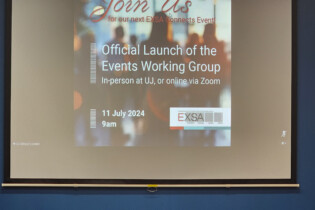 Nkosinathi Biko boasts an impressive portfolio of business and social activism. He is director of Red Coral Investments, which acquired a stake in Gearhouse South Africa in 2006. He is also the Chairman of Gearhouse South Africa and of In Venue Technical Management.
Nkosinathi Biko boasts an impressive portfolio of business and social activism. He is director of Red Coral Investments, which acquired a stake in Gearhouse South Africa in 2006. He is also the Chairman of Gearhouse South Africa and of In Venue Technical Management.
As one of the speakers at the LETPC 2015 conference, Nkosinathi delivered his speech on the topic of building the technical production services industry to international standards. He discusses how the South African technical and production industry fits into international trends and standards:
How do technical elements make an event a success?
I think that the success of a live event is premised on two important pillars, quality content and superior technical detail supporting the delivery of such content. Technical infrastructure such as audio visual, lighting, staging, is the conduit of the creative content of an event. Its primary purpose is to enhance the content and to help to magnify it into a larger than life experience. It therefore needs to be well designed and executed to attain this goal.
What should event organisers know when organising an event with a live show?
Events are ultimately about creating memorable, live experiences. By way of comparison, in media such as film and television, the packaging happens on set and in the edit suite. The experience is then brought to the user in a canned form and primarily through a one-way relationship by way of screening or broadcasting, as the case may be.
However with live events, the user is an inextricable part of the experience as it is being produced. The user of a live event product is at once a consumer of the unfolding product as they are a contributor thereto. So, if you like, whereas in film the screen is talking to the audience, in live events the stage is in a two way conversation with the audience and the chemistry between the two sides of the conversation is critical.
Do you feel the live event, technical and production industries in South Africa meet international standards? Why?
International standards are dynamic in the technical and production industry. They change constantly in response to rapid changes in technology as well as protocols such as health and satety. So, in a sense, the pursuit of international standards will always be ongoing .
This reality notwithstanding, I think that South Africa has demonstrated repeatedly that it possesses quality skills and competitive standards. It has done this by successfully hosting a number of international events, drawing on this human capital. Our point of departure should, therefore, not be that we have no solid foundation. We have this, albeit, that we need to continue to build on these standards.
Are South African live events and their technical elements on trend with our international counterparts?
Speaking from a purely Gearhouse perspective, our purchasing decisions are largely driven by technical rider demands for international tours, conferences etc. We deliver technical elements to suit the international market and in that way are completely “on-trend”. In terms of the events themselves… South African production houses, promoters and event managers definitely have the wherewithal to deliver local events on par with international events.
Is there anything you would like to add?
Our primary challenge as an industry is to ensure that the avenues to acquire the skills we speak of are accessible to all South Africans who wish to be practitioners in the industry and that the composition of our technical teams supporting the international events is also diversified to reflect the output of these avenues.







